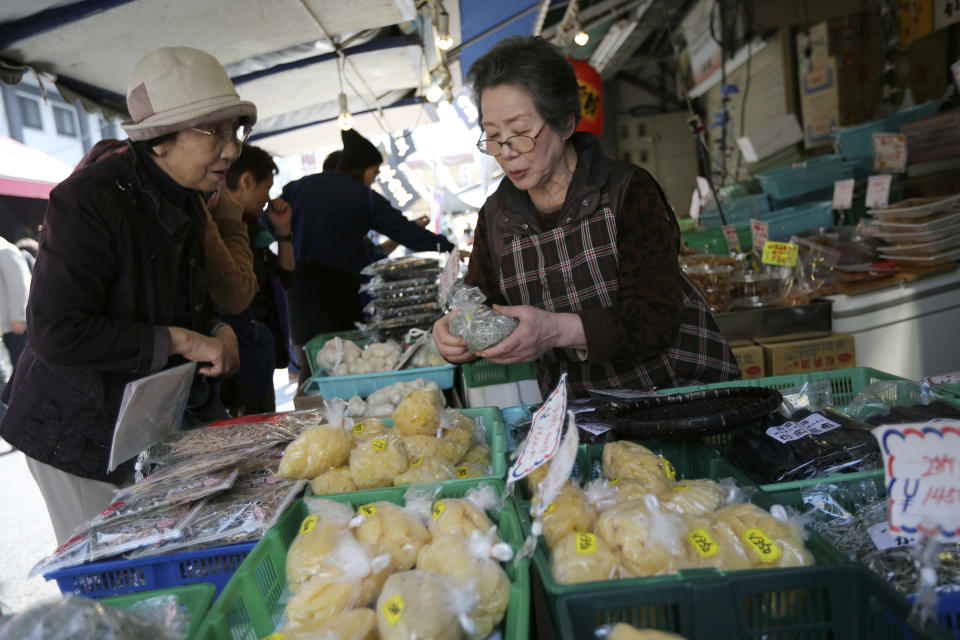BOJ refrains from further easing monetary policy
TOKYO (AP) — Japan's central bank has refrained from expanding its ultra-loose monetary policy despite a sales tax hike, saying the economy is recovering moderately.
The Bank of Japan's policy statement Tuesday was the first since an April 1 increase in the sales tax, to 8 percent from 5 percent, that is expected to stall economic growth in coming months as consumers adjust to higher costs.
The BOJ said inflation is likely to remain at about 1.25 percent for some time, below its target of 2 percent.
"Business sentiment has continued to improve, although some cautiousness about the outlook has been observed," it said. There has been an uptick in corporate investment, the bank said.
Japanese policymakers are counting on expectations of higher prices in the future to drive consumer spending and eventually prompt companies to invest more and create more jobs. The central bank's assessment of current economic trends is calibrated to support that approach.
The bank's decision to stand pat was expected.
"While the economy will surely contract in the second quarter, this needs to be seen in light of a likely surge in output in the first quarter and a likely rebound in the third quarter," Capital Economics said in a commentary Tuesday. "What's more, there is already substantial monetary easing in the pipeline until year-end."
Strong public investment and a housing boom have helped support growth since BOJ Gov. Haruhiko Kuroda announced, a year ago, unprecedentedly huge asset purchases to spur inflation and help Japan's economy recover from two decades of doldrums.
Kuroda has said the policies will remain for as long as needed.
Meanwhile, Japan's current account returned to surplus in February for the first time in five months, the Finance Ministry reported.
It said higher income from overseas securities investments, due to the weaker yen, offset the trade deficit, although the surplus in the current account, which also includes trade, fell 5.7 percent from a year earlier to 612.7 billion yen ($5.9 billion).
Japan has ramped up imports of oil and gas to compensate for the loss of its nuclear power capacity following the 2011 accident at the Fukushima Dai-Ichi nuclear power plant. A weakening in the yen's value in the past 18 months has inflated the cost of its imports, while exports have not kept pace.




